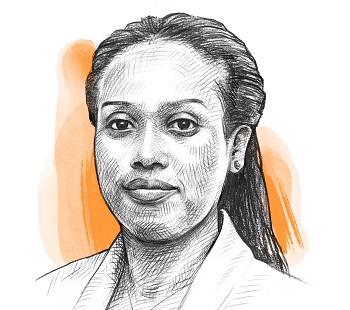CRPM – Regional Cooperation on Migration Policies
Objective
-
€2.5mBUDGET
-
15/06/2020PROJECT START
-
36 monthsDURATION
Improving the governance of migration policies
Migration is central to the international dialogue and a key issue for any country and regional area concerned by population movements (departures, transits, arrivals and/or returns). Intracontinental migration accounts for 70% of international mobility in Sub-Saharan Africa. Migration involves both risks that must be prevented and significant potential to exploit.
In view of this, governments, particularly in Africa, are developing strong national migration policies and strategies. It is essential to measure both their performance and the ability of countries to coordinate their actions on a transnational basis.
Civil society organisations have recognised expertise in migration issues. Taking greater account of their views contributes to establishing effective public policies that are more respectful of human rights, in line with the objectives of Agenda 2030 for safe, orderly and regular migration.
With an approach based on a multi-stakeholder dialogue, joint construction and the priorities of partner countries, the CRPM project aims to support the dialogue of African public institutions and civil society organisations on the governance of migration policies. To this end, it will help build sustainable tools to measure the impact of public policies and spaces to facilitate this dialogue.
CRPM: Two components for the multi-stakeholder dialogue
The CRPM project focuses on migration issues identified as priorities by partner countries. It will more specifically work on two components:
1) Strengthening tools for monitoring public policies on migration and peer dialogue. This will involve:
• Conducting diagnostics of existing tools to monitor migration policies and their level of ownership in each country of operation. Special attention will be paid to gender issues;
• Defining a basket of country-specific indicators and a harmonised indicator matrix in the seven countries that respond to the national and regional priorities for monitoring migration policies;
• Regional consultations also involving African regional institutions and allowing the exchange of practices between countries and the validation of the basket of common indicators, based on regional coordination;
• Identifying concerted actions to implement at the multi-country or regional levels.
2) Strengthening the dialogue with civil society. This component aims to support civil society organisations (CSOs) and/or networks of civil society stakeholders so that their experiences can feed into the institutional dialogue on public policies on migration. This will involve supporting:
• Consultation activities between CSOs for public policies on migration that respect the rights of migrants and refugees in partner countries and at regional level;
• Capacity building activities for CSOs (professional exchanges, training, production of tools, etc.);
• The contribution and participation of CSOs in national and regional dialogues on public policies on migration (meetings, impact assessments, advocacy activities).
A national and regional project
The Regional Cooperation Project on Migration Policies is financed by Agence Française de Développement and implemented by Expertise France.
It is working with key stakeholders (public institutions and civil society) in the migration sector in seven North African and Sub-Saharan African countries: Cameroon, Côte d’Ivoire, Guinea, Mali, Morocco, Senegal and Tunisia.
The project will also mobilise regional institutions, including the African Union (AU) and Economic Community of West African States (ECOWAS), to promote exchanges that contribute to structuring joint tools for monitoring migration policies.


